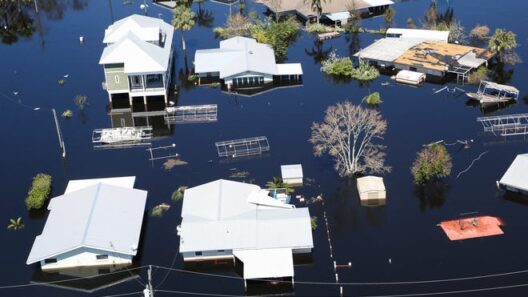The topic of global warming encompasses a myriad of discussions, including its multifaceted causes and the role of various human activities. Among the notable figures in climate activism is Al Gore, who has dedicated decades to raising awareness about climate change and its dire implications. One of the more contentious claims associated with him is whether he connected the Olympic torch’s usage to global warming. This inquiry delves into not just Gore’s alleged statements, but also the broader context of how global events relate to climate change and the intentional use of symbolism within such discussions.
The Olympic torch has long been an enduring symbol of peace and athletic prowess. Traditionally lit in Olympia, Greece, it has served as a beacon of the Olympic spirit. Its journey to the host city is marked by a relay involving multiple participants, each passing on the flame, culminating in the grand lighting of the cauldron during the opening ceremony. However, this seemingly innocuous ceremonial occurrence is seen by some advocates, including Gore, as emblematic of larger environmental issues when combined with the backdrop of climate change.
Environmental advocates often highlight the immense carbon footprint associated with large-scale events, including the Olympics. The infrastructure needed—stadiums, transportation, accommodations, and energy consumption—contributes significantly to greenhouse gas emissions. Gore, throughout his advocacy, emphasizes the necessity to scrutinize such events. While he may not have explicitly claimed that the Olympic torch itself contributes to global warming, he underscores the importance of evaluating our traditions and rituals in light of our contemporary ecological challenges.
From an ideological perspective, the philosophical underpinnings of Gore’s assertions can be dissected through the lens of globalism and sustainability. The Olympic Games have transformed from a regional celebration into a global event, attracting attendees and participants from all corners of the earth. The cumulative environmental impact results in a perplexing paradox—one that contrasts the values of unity and peace against the backdrop of environmental degradation. Herein lies a crucial factor: the symbolism of the Olympic torch can evoke feelings of hope and introspection regarding our environmental responsibilities.
Critically, it is essential to consider the environmental ramifications associated with hosting the Olympics, which can range significantly depending on the host city’s planning and execution. For instance, in cities where there is an emphasis on sustainable practices, the carbon footprint can be mitigated through green building initiatives and efficient public transportation systems. Conversely, in locales lacking such foresight, the ecological toll could be staggering, exacerbating fossil fuel use and compounding climate change issues. Advocates assert that the Olympic torch relay should heighten awareness about these discrepancies, prompting a dialogue about how societies choose to allocate resources.
The infrastructure used to facilitate the Olympic Flame’s journey can also be scrutinized through the lens of resource consumption. Helicopters, vans, and other powered vehicles often accompany the torch relay to transport participants and ensure its visibility. Critics argue that these actions contradict the ideals of sportsmanship and friendship by inadvertently promoting ecological irresponsibility. Such actions reinforce Gore’s advocacy for adopting sustainable practices not only at events like the Olympics but throughout everyday life.
In the broader arena of global climate issues, Gore emphasizes the notion of collective accountability. The poignant symbolism of the Olympic torch potentially serves as a catalyst for reflection on the implications of our celebratory traditions. Just as athletes torch the flame, society must confront the burning reality of climate change, fostering a sense of urgency to take action. Through continuous dialogue and advocacy, the trivialization of topics like fossil fuel consumption during large events can be transformed into meaningful discussions that galvanize community engagement.
Through examining Gore’s association with such discussions, it is vital to contemplate the intersection of cultural events and environmentalism. The torch’s symbolism in the context of an event notorious for its grandeur serves as an ideal backdrop. Here, the juxtaposition of celebration against catastrophic environmental shifts urges deeper inquiry into our global carbon footprint. Global warming is not merely a scientific discourse; it permeates all aspects of life, including our cultural rituals.
Interestingly, the conversation surrounding the Olympic torch is not merely about criticising the torch relay but rather about fostering awareness. How the torch is viewed in the contemporary age can reflect society’s evolving values in regard to sustainability. As individuals grapple with the consequences of anthropogenic climate change, every element of our lives—including the symbolism of sports—can be scrutinized for its ecological footprint.
In conclusion, while Al Gore may not have categorically asserted that the Olympic torch contributes to global warming, the inquiry raises essential questions about responsibility and awareness in our global practices. It invites a comprehensive understanding of how cultural events, particularly those as monumental as the Olympics, impact the environment. The torch wielded by athletes can embody a dual narrative: one of ancient tradition and the other urging modern accountability. As this discussion continues, the notion of sustainability will likely become as integral to the Olympic spirit as athletic prowess itself, necessitating a reevaluation of how we celebrate human achievement against the pressing backdrop of climate change.








